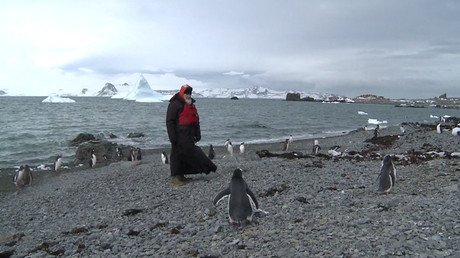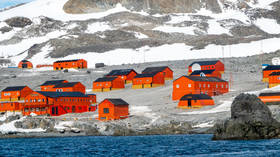South American leader makes Antarctica sovereignty claim

Chilean President Gabriel Boric has made history as the first Latin American leader to visit the South Pole, reaffirming Chile’s sovereignty claim over part of Antarctica.
Accompanied by Defense Minister Maya Fernandez, Environment Minister Maisa Rojas, and senior military officials, President Boric embarked on the trip on January 2, 2025, departing from Punta Arenas in southern Chile on board a Hercules C-130 military transport plane. His first stop was Chile’s research station on Union Glacier before proceeding to the South Pole.
Later that day, the delegation visited the United States’ Amundsen-Scott South Pole Station, where they spent approximately two hours meeting researchers and observing scientific projects. The presidential office described the visit as occurring “at an important moment for Chile’s scientific endeavors in the region.”
Llegar al Polo Sur, un orgullo para Chile. Seguimos trabajando para que la Antártica siga siendo un continente de ciencia y paz. pic.twitter.com/4AlwC8YgK8
— Gabriel Boric Font (@GabrielBoric) January 4, 2025
“This is a milestone for us,” Boric said in footage broadcast on Chilean television. “It is the first time a Chilean president has come to the South Pole and talked about Chile’s Antarctic mission.”
Boric also declared that the visit was “a confirmation of our claim to sovereignty” over part of the continent.
During the 20th century, several countries, including Russia, the United States, Britain, France, Argentina, and Japan, established research stations in Antarctica to support scientific studies and maintain a presence in the remote region. Since 1961, the Antarctic Treaty has governed activities on the continent and its surrounding seas, designating the region a scientific preserve while prohibiting military operations to prevent geopolitical tensions.
Chile has maintained a continuous presence in Antarctica for decades, operating several research stations and actively participating in the Antarctic Treaty System. Historically, its research efforts have been concentrated in northern Antarctica. However, according to a statement from the presidency, Chile now aims to expand its scientific endeavors to the Bellingshausen and Weddell Seas.
Although seven countries, including Chile, have territorial claims in Antarctica, the US State Department maintains that “the United States and most other countries do not recognize those claims.”














